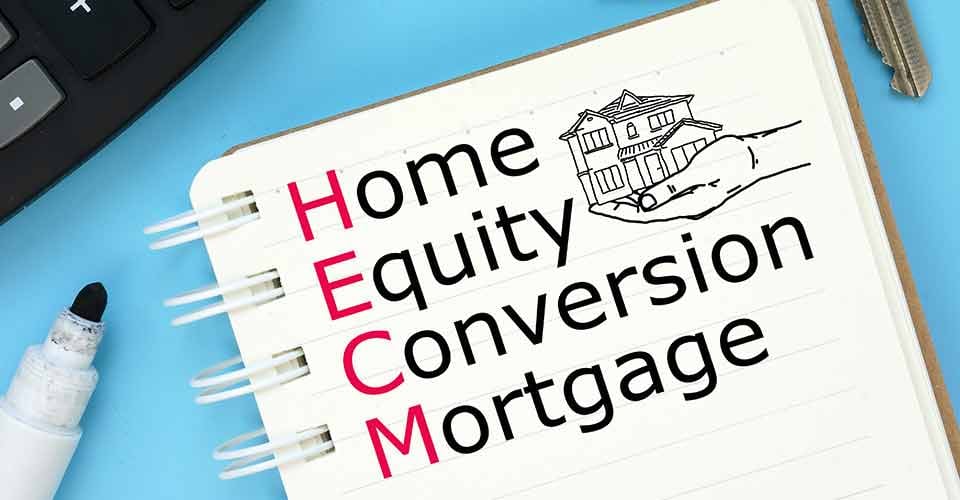Exploring Financial Freedom Through Equity Release Mortgages
Exploring Financial Freedom Through Equity Release Mortgages
Blog Article
Checking Out the Various Kinds Of Equity Release Mortgages Available Today
Equity Release home loans existing different options for home owners aged 55 and over. equity release mortgages. These monetary items provide to different demands and choices, allowing individuals to access funds from their property. From lifetime home loans to shared gratitude mortgages, each kind offers unique benefits. Understanding these options is important for making notified decisions. What variables should one consider when selecting the most appropriate equity Release plan? The details that follow might drop light on this essential subject
Understanding Equity Release Mortgages
Equity Release mortgages provide house owners, typically those aged 55 and over, with a means to access the value connected up in their residential or commercial property without requiring to offer it. This monetary choice allows people to convert a part of their home equity right into money, which can be used for different objectives, such as home improvements, paying off debts, or funding retirement.Equity Release can take different kinds, yet it fundamentally involves borrowing versus the worth of the home while preserving ownership. Property owners can pick to get a round figure or a series of smaller sized repayments, relying on their financial needs and preferences.Additionally, the amount available for Release is affected by the residential or commercial property's worth, the house owner's age, and certain lender requirements. On the whole, recognizing equity Release home loans is essential for homeowners to make informed decisions regarding using their home's equity while taking into consideration the long-term effects.
Life time Mortgages
Life time mortgages stand for among the most preferred types of equity Release. This monetary item allows house owners, usually aged 55 or older, to obtain versus the value of their building while retaining possession. The funding, which is secured against the home, builds up interest with time however does not need regular monthly repayments. Instead, the car loan and accrued passion are paid back when the homeowner passes away or relocates into lasting care.Lifetime home loans offer adaptability, as customers can choose to obtain a lump sum or select a drawdown center, accessing funds as required. Importantly, lots of plans featured a no-negative-equity guarantee, making sure that borrowers will never owe greater than the worth of their home. This attribute gives peace of mind, permitting individuals to enjoy their retirement without the fear of diminishing their estate. Generally, life time home loans act as a practical choice for those looking for monetary assistance in later life.
Home Reversion Program

Drawdown Lifetime Mortgages
While several homeowners seek means to access their wealth, drawdown life time mortgages present a flexible option that enables individuals to Release funds progressively. This kind of equity Release mortgage allows house owners to obtain versus the value of their building while preserving possession. Unlike typical lifetime mortgages, drawdown strategies allow customers to access a part of their equity upfront and withdraw extra funds as needed, as much as a fixed limit.This attribute can be particularly beneficial for those that desire to handle their financial resources thoroughly, as it lessens passion accumulation by just charging rate of interest on the quantities attracted. In addition, drawdown life time home loans often include a "no adverse equity guarantee," making sure that customers will certainly never owe more than their home's value. This option fits retired people that want financial safety and security and flexibility, allowing them to meet unforeseen costs or preserve their way of living without needing to sell their residential property.
Boosted Life Time Mortgages
Boosted Lifetime Mortgages offer distinctive advantages for eligible homeowners seeking to Release equity from their buildings. Recognizing the qualification standards is essential, as it establishes that can benefit from these specialized lendings. Nonetheless, it is likewise vital to examine the potential disadvantages connected with improved choices, making sure a well-rounded point of view on their use.
Qualification Criteria Described
Recognizing the eligibility standards for Improved Lifetime Mortgages is essential for possible applicants seeking to access the equity in their homes. Commonly, applicants must be aged 55 or older, as this age need is conventional in the equity Release market. House owners need to possess a residential or commercial property valued at a minimal threshold, which can vary by loan provider. Notably, the building should be their primary residence and in great condition. Lenders often analyze the homeowner's wellness condition, as certain health and wellness conditions might improve qualification and benefits. Furthermore, applicants must not have existing substantial financial obligations protected against the residential property. Fulfilling these standards allows people to discover Improved Lifetime Mortgages as a practical alternative for accessing funds tied up in their homes.
Advantages of Boosted Home Loans
After making clear the qualification criteria, it becomes apparent that Boosted Lifetime Mortgages offer several considerable benefits for homeowners looking to leverage their property equity. Mostly, they give access to a larger financing amount contrasted to common life time home loans, profiting those with health problems or age-related aspects that enhance their life span risk. This enhanced borrowing capability permits house owners to satisfy numerous economic needs, such as home renovations or retired life expenditures. Additionally, these mortgages generally include adaptable payment options, making it possible for debtors to manage their funds better. The no-negative-equity assurance additionally ensures that house owners will never owe even more than their residential or commercial property's value, providing assurance. Overall, Improved Lifetime Mortgages provide a compelling alternative for eligible homeowners seeking economic services.
Possible Drawbacks Thought About
While Boosted Life time Home loans use various benefits, possible downsides require mindful factor to consider. One considerable issue is the influence on inheritance; the equity launched decreases the worth of the estate left to recipients. In addition, these home loans can build up significant passion over time, bring about a significant Extra resources debt that might surpass the initial car loan quantity. There might likewise be restrictions on building modifications or rental, restricting homeowners' flexibility. Furthermore, boosted products typically call for specific health and wellness conditions, meaning not all homeowners will certainly certify. Managing the charges and charges linked with these mortgages can be complicated, potentially leading to unexpected costs. Because of this, people need to thoroughly examine their circumstance and consult economic consultants prior to continuing.
Shared Appreciation Mortgages
Shared Admiration Home mortgages stand for a distinct economic setup that allows home owners to gain access to equity while sharing future residential or commercial property value raises with the lending institution. This technique offers possible advantages such as minimized month-to-month settlements, however it likewise features drawbacks that must be carefully considered. Recognizing the eligibility needs is essential for those interested in this option.
Concept Overview
Equity Release home mortgages, particularly in the kind of common recognition home loans, use house owners an unique monetary remedy that enables them to gain access to funds by leveraging the value of their building. In this arrangement, a loan provider supplies a loan to the house owner, which is typically paid off through a share of the property's future admiration in worth. This implies that when the property owner sells the building or dies, the loan provider receives a percent of the boosted value, rather than simply the first car loan quantity. Shared recognition home loans can be appealing for those looking to supplement their earnings or financing significant costs while retaining ownership of their home. The financial implications of common appreciation need to be thoroughly considered by potential debtors.
Benefits and Downsides
Although common gratitude mortgages can provide considerable economic advantages, they also come with notable downsides that possible debtors must think about. These mortgages permit house owners to access equity in their homes while sharing a part of any type of future appreciation with the lending institution. This plan can be useful during times of climbing home worths, supplying considerable funds without monthly payments. The primary drawback is the prospective loss of equity; home owners might finish up with considerably lowered inheritance for beneficiaries. Furthermore, the intricacy of the terms can cause misconceptions pertaining to settlement responsibilities and the percent of gratitude owed. Consequently, it is crucial for consumers to weigh these aspects thoroughly before dedicating to a shared admiration home loan.
Eligibility Needs
What standards must home owners satisfy to get approved for a common gratitude home loan? Largely, candidates need to be at the very least 55 years old, ensuring they are within the target market for equity Release items. In addition, the building needs to be their primary home and generally valued over a defined minimum threshold, usually around ? 100,000. Lenders additionally examine the home owner's economic circumstances, consisting of revenue and arrearages, to ascertain they can manage the mortgage responsibly. Significantly, the building must be in good problem and free from substantial lawful encumbrances. House owners should likewise have a clear understanding of the terms, consisting of how appreciation will be shared with the lender upon sale or transfer of the home, as this influences overall returns.
Picking the Right Equity Release Choice

Often Asked Inquiries
What Age Do I Need to Be for Equity Release?
The age requirement for equity Release commonly starts at 55 for a lot of plans. Some carriers may provide alternatives for those aged 60 and above, reflecting varying terms based on private conditions and lender policies.
Will Equity Release Impact My Inheritance?
Equity Release can influence inheritance, as the amount borrowed plus rate of interest minimizes the estate's worth. Heirs may get less than expected, relying on the residential or commercial property's appreciation and the total financial obligation at the time of passing.
Can I Relocate Residence With Equity Release?
The inquiry of relocating house with equity Release arises frequently. Typically, individuals can transfer their equity Release plan to a new home, however specific terms may apply, calling for appointment with this the lending institution for guidance.
Are There Costs Related To Equity Release Mortgages?
Charges connected with equity Release mortgages can consist of plan fees, valuation fees, and lawful expenses. Additionally, there might be early repayment fees, which can impact the overall cost and financial effects for the customer.
Exactly How Does Equity Release Influence My Tax Obligation Situation?
Equity Release can impact one's tax circumstance by potentially boosting gross income, as launched funds are considered funding. Nonetheless, it normally does not incur prompt tax responsibilities, making it vital to seek advice from a monetary expert for customized support.
Conclusion
In summary, the range of equity Release home mortgages available today provides home owners aged 55 and over multiple pathways to access their property's worth - equity release mortgages. Whether choosing a lifetime home mortgage, home reversion plan, or other choices, each option presents unique advantages customized to specific financial needs. Cautious factor to consider and consultation with a financial consultant are necessary to guarantee the chosen equity Release solution lines up with monetary situations and personal goals, ultimately facilitating informed decision-making for a secure economic future. Equity Release home loans present various options for homeowners aged 55 and over. Equity Release home mortgages supply house owners, normally those aged 55 and over, with a way to access the value tied up in their property without needing to market it. Improved Life time Home mortgages provide distinct advantages for qualified house owners seeking to Release equity from their homes. Equity Release home mortgages, especially in the form of common recognition mortgages, provide home owners an one-of-a-kind economic option that allows them to accessibility funds by leveraging the value of their home. In summary, the range of equity Release home loans available today supplies house owners aged 55 and over multiple paths to access their residential or commercial property's worth
Report this page